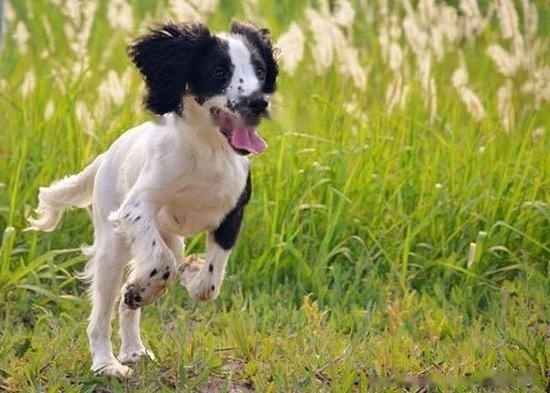For some experienced breeders, evaluating a puppy that will excel in future competitions is a relatively easy task. And for most people, without such a wealth of experience and knowledge, a good dog with the potential to compete will slip through their fingers.

Determining whether a puppy has the potential to compete is an accumulation of experience and knowledge, and a test of your judgment. An experienced breeder knows much more about the bloodlines of his own dog than he knows about the bloodlines of other dogs. They seldom make mistakes in this regard, which most breeders do not possess. Their eyes are narrow and they only see or only want to see what they want to see. The referee can make a racing dog or destroy a racing dog. A well-known racing dog will have certain advantages, which may sometimes make it difficult to beat by other dogs on the field. This phenomenon is very common in competition. It's not surprising that a well-known champion dog is beaten by a dog with no reputation, it's also part of the game. Sometimes the definition of a racing dog is not so clear-cut. If you don't experience or participate, you can't know anything.
Generally speaking, judges can be divided into single-breed experts, multi-breed experts and full-breed experts. Within a group, some dog breeds are more attractive and more popular than others. This means that some judges will gravitate towards the popular, more attractive breeds (negative judges). An experienced all-breed judge will consider the overall quality of a dog as a whole, and their wealth of knowledge will not let them be affected by the popularity of the dog. Some recent judges have become too idealistic, mature judges will be more realistic, as one veteran said, I take no responsibility for the quality of the dogs that enter the competition, my job is to Pick the best of them and go home. There are always judges who have unique quirks that make life more interesting for the contestants.
It's hard to find a referee with a distinct personality these days. It has been recorded that the ancestors of most race dogs have ancestry of several champion dogs. It seems like a simple equation: inheritance of quality and quality, inheritance of style and style, and that's DNA. If a dog inherits inferior genes, its overall quality may not make it a champion dog. So can he give birth to a good champion offspring? Will it become a good race class? Margaret Migliorini once had a champion barley dingo, and his pedigree certificate cannot find the grandparents of the champion. But such examples are few after all, and they do not prove any problem. There is an effective way to be successful and to have a good dog from the start. How do you do that? You can find reputable breeders or breeders whose names are in magazines. Dig out some useful advice or knowledge from them, and be humble and prudent to improve your abilities.
On one occasion a breeder wrote a letter to one of our authors stating that she was not sure if the puppy she was breeding was a race dog. Before the author could reply, the second letter arrived. That pup had 4 home points in 4 straight games to complete the championship landing. But in most cases, leading an immature puppy to a high-level game can only be a waste of more money. An immature puppy is very difficult to complete the championship landing. A discerning breeder will have the patience to wait until it matures, and a puppy who loses regularly turns into an adult who regularly wins.
What I'm trying to say here is this: Patience is a rare virtue that only a few people have, and that most successful people have. Sometimes when you lose patience you lose everything.
![[Dog Training 5] The training method of pet dog dining etiquette](/static/img/12192/12192_1.jpg)




